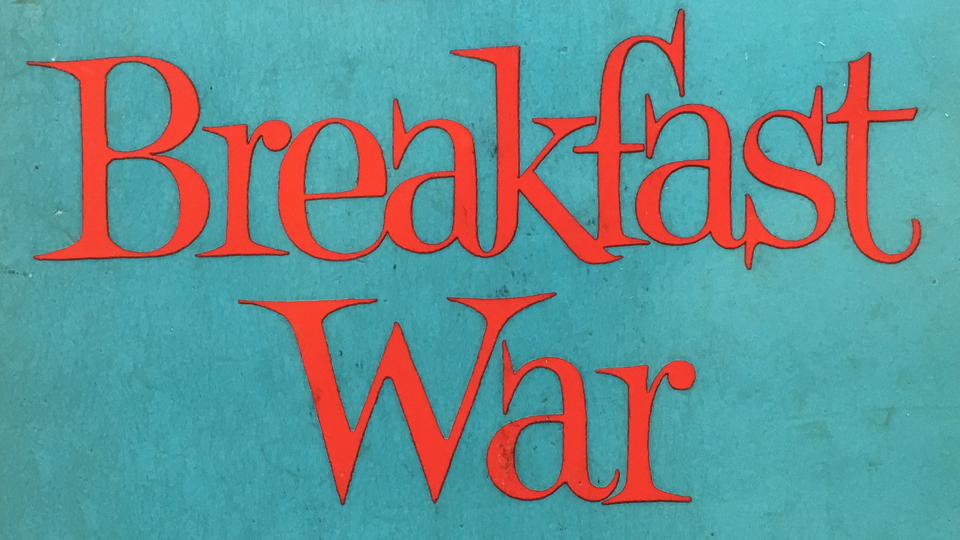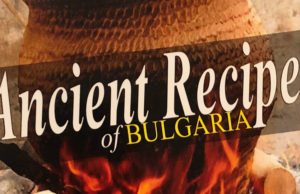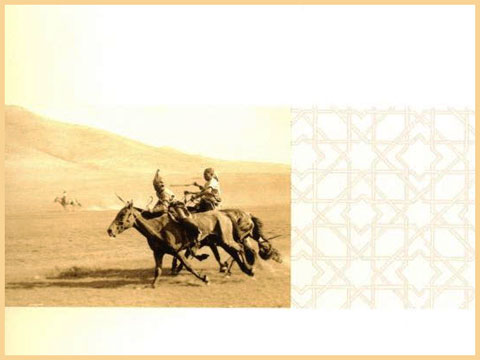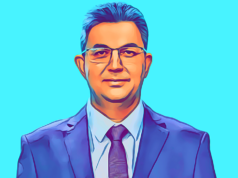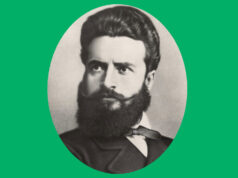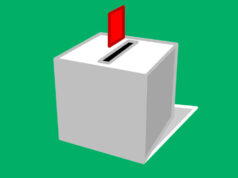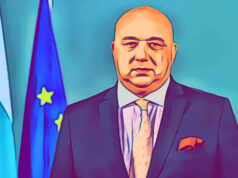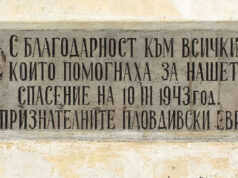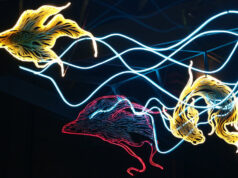Rupert Furneaux’s The Breakfast War transports us back into the 19th century, to the opening moves of the Russo-Turkish War, to the the Siege of Plevna, one of the key engagements of the conflict. First thought of as a simple job for the mighty Russian Army, taking Plevna proved to be a long and difficult fight, consuming almost 5 months before the Ottoman garrison finally surrendered.
Written as historical fiction, Furneaux makes good use of original sources to recreate the people, places and relationships that riveted bystanders around the world for a few months in 1877. Framed as a battle of wits between two leading military men, Osman Pasha on the side of the Ottomans and, for the Russians, General Michael Skobeleff, Furneaux rehearses each action of the battle and siege from the initial assault and stunning defeat of the Russian attackers, to the last ditch effort to break out in the waning days of the siege. The closing chapters of the book mix real wartime correspondence with imagined thoughts and conversations as the fate of Plevna and the ultimate Russian victory draw near.
As much a story of friendship as it is a tale of war, Furneaux skillfully recreates the camaraderie of the journalist corps covering the siege for their western audience. Since this war predated the stranglehold of censorship imposed by later armies on journalists near the front, there seemed to be much more to share and talk about among themselves, with time left still to turn in almost daily reports for their eager readers at home.
Contents of The Breakfast War
The Breakfast War: Annotated Table of Contents
Foreword
Chapter 1: The War Called Holy
Introducing the story and placing it in its historical context.
Chapter 2: The Pen and the Sword
Introducing the main actors in the story, the soldiers and war correspondents at Plevna.
Chapter 3: The Lock of the Door
The Russians Cross the Danube into Bulgaria.
Chapter 4: The Race for Plevna
How Osman Pasha marched his army from Vidin to Plevna and secured his position.
Chapter 5: Check to the Russians
First attack and Turkish defensive preparations for the defense of the town.
Chapter 6: The First Assault
The Ill-fated Russian attempt to seize the town.
Chapter 7: Russian Interlude
During which the Russians realize Plevna would be a long campaign.
Chapter 8: Turkish Interlude
Turkish forces regroup, retrench, and prepare for defense.
Chapter 9: The Bombardment
Russians attempt to soften up the city defenses.
Chapter 10: The Great Assault
Reports from the battlefield amidst skirmishes.
Chapter 11: The Counter-Attack
More reports from the battlefield.
Chapter 12: Inquest of Death
Post mortem of the Great Assault and its consequences.
Chapter 13: Escape of a correspondent
How correspondent Drew Gay escaped Plevna and reported back to the Sultan.
Chapter 14: The Grip Tightens
Russian maneuvers to effect the siege of Plevna. By the end of October 150,000 Russian and Romanian troops had the town in a stranglehold.
Chapter 15: Night Attack
Mischief making by General Skobeleff and the actions of his army as they thrust and parry with Turkish troops at the front, wearing down the enemy and causing him to spend his precious ammunition to little effect.
Chapter 16: The Investment
A description of the seige, including communications between the two sides, preparing for the endgame. Both sides knew the battle was over: Either the Turks would surrender or attempt to break out.
chapter 17: The Break Out
A detailed description of the final action of the siege. Osman Pasha led his troops in an attmpted breakout, but after half a day fighting they failed to escape the noose and surrendered to the victorious Russian army.
Chapter 18: Onward to Constantinople
An epilogue rehearsing in brief the outcome of the war and the disposition of the principal characters present at the siege of Plevna.
Appendix: Principal Officers of the Plevna Garrison
Bibliography
Index
Maps
The Breakfast War includes four useful maps to help inform the reader of the opposing positions and troop movements:
- Bulgaria The Campaign of 1877-78.
- Plevna, 30 July 1877. The first assault.
- Plevna, 11 September 1877. The great assault.
- Plevna. The investment and sortie.
The Breakfast War: List of Illustrations
Two groups of illustrations help the reader visualize battle scenes, the journalist camps, and major events in the news. Most were reproduced from 19th century newspapers that carried the original stories to the breakfast tables of Europe.
Group One:
- The Bashi-Bazouks at bay.
- The July assault from the southeast.
- Death of Colonel Rosenbaum of the Archangel Regiment.
- Portrait of Osman Pasha, the Defender of Plevna.
- Portrait of General Michael Skobeleff of the Russian Army.
- The Great Assault. Two sketches, from the southeast and the southwest.
- Russian attack on an Ottoman redoubt.
- A Turkish family in Plevna.
Group 2:
- The correspondents’ camp attacked by wolves.
- Storming the Grivitza redoubt.
- In the captured Grivitza redoubt.
- General Radetzky’s Dragoons to the rescue.
- General Skobeleff resting in the forward trenches.
- The Turkish sortie from Plevna.
- Osman Pasha on his way to be received by the Czar.
- Osman Pasha en route to Kharkoff.
Rupert Furneaux made extensive use of news reports, memoirs, notes and other personal observations while writing The Breakfast War. The following works appear in the Bibliography at the back of the book:
Outside Plevna
Baker, Valentine. The War in Bulgaria. 2 Vol, 1879.
Boyle, Fred. Narrative of an Expelled Correspondent. 1877.
Cookson, Fife. Armies of the Balkans. 1879.
Forbes, Archibald. War Correspondent for the Daily News, 1877-8.
Glimpses through the Cannon Smoke. 1880.
Souvenirs of Some Continents. 1885.
Barracks, Bivouacs and Battles. 1895.
Camps, Quarters and Casual Places. 1896.
Huysche, Wentworth. The Liberation of Bulgaria. 1894.
Montagu, Irving. Camp and Studio. 1890.
Nemirovitch-Dantchenko, V. Personal Reminiscences of General Skobeleff. 1884.
Villiers, Frederick. Pictures of Many Wars. 1902.
Wellesley, Col. The Hon. F.A. With the Russians in Peace and War. 1878.
Inside Plevna:
Gay, Drew. Plevna, the Sultan and the Porte. 1878.
Herbert, William Von. The Defense of Plevna. 1895.
Ryan, Dr. Charles. Under the Red Crescent. 1897.
Military and Political:
Green, F. V. The Campaign in Bulgaria. 1877-8. 1903.
Harris, David. Britain and the Bulgarian Horrors of 1876. 1939.
Hozier, Capt. H. M. The Russo-Turkish War. 5 vols.
MacGahan, J. A. The Turkish Atrocities in Bulgaria. 1876.
Maurice, Major F. The Russian-Turkish War. 1877.
Pears, Sir Edwin. Forty Years in Constantinople. 1915.
Scudamore, F. A Sheaf of Memoirs. 1925.
Wirthwein, Walter G. Britain and the Balkan Crisis (1875-8). 1935.
Wittlin, Alma. Abdul Hamid. The shadow of God. 1940.


